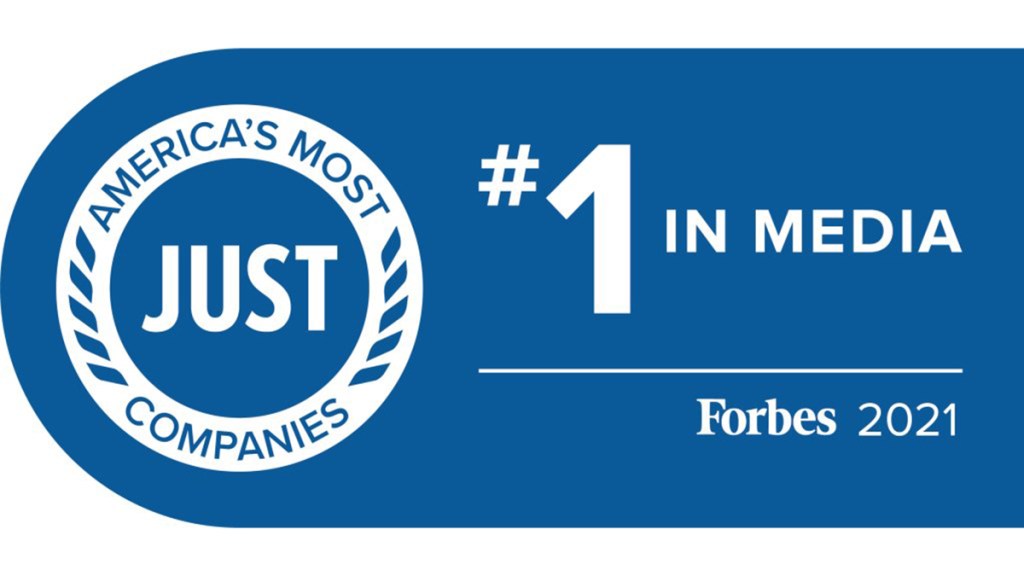Responsabilidade e sustentabilidade
Visão geral
Nossa responsabilidade e estratégia de sustentabilidade
Como parte do propósito da Nielsen de impulsionar um futuro melhor na mídia para todas as pessoas, nós nos esforçamos todos os dias para envolver nosso pessoal, processos, dados e tecnologia para fazer da Nielsen uma empresa mais responsável e permitir um mundo mais justo, onde todos estão incluídos e todos contam. Nossa estratégia ambiental, social e de governança (ESG) leva em conta os fatores mais importantes que afetam nossos negócios, operações e partes interessadas globalmente. Através de práticas empresariais responsáveis e sustentáveis e nosso compromisso de retribuir com projetos voluntários e pro bono, cuidamos das comunidades e mercados onde vivemos e operamos nossos negócios.
Nosso negócio
Na Nielsen, nossos produtos, nossa plataforma de negócios e nosso modelo operacional estão focados em garantir que cada voz conte. As considerações e impactos ambientais, sociais e de governança (ESG) são tecidas ao longo deste trabalho.

Nosso mundo
A Nielsen tem o compromisso de fortalecer as comunidades e os mercados nos quais vivemos e operamos nossos negócios. Aproveitamos o poder dos dados para ajudar a desbloquear novas soluções para os desafios sociais e ambientais, prometendo pelo menos US$ 10 milhões de valor em espécie por ano para dados pro bono para bons projetos e voluntariado baseado em habilidades.
Trabalho voluntário na Nielsen
Fornecemos 24 horas de Tempo Voluntário Dedicado a cada funcionário da Nielsen anualmente, como parte de nossos esforços para aprofundar o engajamento dos funcionários através do voluntariado. Cares & Green, dois dos Grupos de Recursos Empresariais da Nielsen, ajudam a fazer a diferença para as questões sociais e ambientais críticas que são importantes para nossos funcionários e nossas partes interessadas. Os líderes regionais e locais da Cares & Green criam eventos e promovem a conscientização, especialmente com nossas iniciativas anuais do Dia da Terra e do Dia do Impacto Global da Nielsen.
Fundação Nielsen
A Nielsen Foundation é uma fundação privada originalmente financiada pela Nielsen, uma empresa global de dados e análises. A missão da Fundação é impulsionar e promover a inovação e a representação inclusivas nos setores de mídia e tecnologia, especialmente por meio do uso de dados e pesquisas.
Dados para o Good®.
Na Nielsen, incentivamos o voluntariado baseado em habilidades por meio do programa Data for Good. Esses projetos e iniciativas envolvem dados, soluções e talentos da Nielsen em organizações sem fins lucrativos para causar um impacto positivo, especialmente em causas relacionadas à representação e inclusão. Por meio dos projetos Data for Good, os voluntários da Nielsen ajudam as organizações sem fins lucrativos a identificar e entender seus públicos, melhorar as mensagens, analisar o alcance e o impacto, e muito mais.
Reconhecimento
EcoVadis

A Nielsen obteve a classificação prata em nossa avaliação EcoVadis 2024, alcançada por aproximadamente 15% das empresas mais bem avaliadas. A estrutura da metodologia EcoVadis avalia as políticas e ações das empresas, bem como seus relatórios publicados relacionados ao meio ambiente, trabalho e direitos humanos, ética e compras sustentáveis.
JUST Capital

Em um ranking anual da JUST Capital, a Nielsen foi nomeada uma das Empresas Mais Justas da América de 2017 a 2022.
Recursos
Relatórios e políticas adicionais
*Nosso mais recente Relatório Federal de Informação do Empregador EEO-1 está disponível publicamente, embora não utilizemos esses dados para definir nossas metas de força de trabalho ou medir o progresso. Nosso relatório de 2020 reflete nossa força de trabalho americana antes da venda da NielsenIQ e pode diferir de outros dados devido a diferenças no tempo e nas definições de relatórios.



